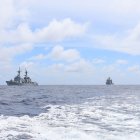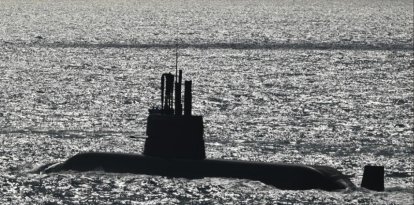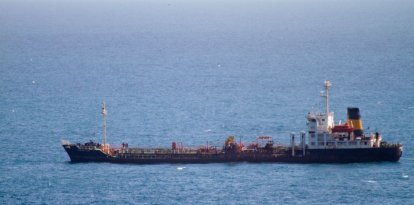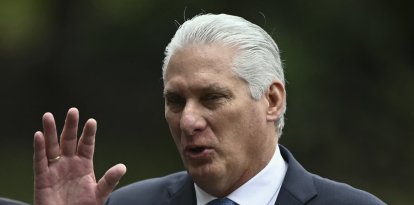Philippines and China exchange accusations as China Sea tensions escalate
The U.S., which backs the Philippines, accused the Chinese Communist Party of committing unsafe, illegal and aggressive acts against its ally.

Chinese Coast Guard vessels
Tensions are rising in the South China Sea, or the West Philippine Sea, depending on who you ask. After a month of escalation in waters claimed by bot the Philippines and China, the last few hours have seen incidents that both countries point to as provocation by the other.
This Monday, the Chinese Communist Party assured that it had taken "control measures" against two Philippine coast guard boats which it said tried to "illegally barge into waters near Xianbin Jiao" (the Chinese name for Sabina Shoal, called "Escoda" by the Philippines and also claimed by Taiwan and Vietnam). The two vessels approached Chinese Coast Guard vessels "dangerously." Then, "the Chinese coast guard took control measures against the Philippine ships in accordance with the law."
The version from the Philippines, a U.S. ally, is very different. It claims its ships were on their way to deliver supplies to another ship in Sabina Shoal when they had to turn back due to dangerous sea conditions, and there was an "excessive" number of Chinese vessels deployed in the area, a Philippine Navy spokesman told AFP. "We were boxed, we were surrounded and it was difficult for us to move forward," said the spokesman, who listed the adversary presence as six coast guard vessels, three navy ships and 31 other unidentified vessels.
On Saturday, Manila blamed China for firing flares at one of its aircraft, which was patrolling the disputed sea. A day later, Beijing claimed a Philippine vessel had cut off one of its own. Manila rejected the allegations, calling them "completely unfounded." The same day, a Philippine task force dedicated to monitoring the area claimed that eight Chinese maritime vessels cut off, sounded horns and deployed water cannons against a vessel of one of its public agencies that was on a "humanitarian operation."
This Monday, Manila's National Maritime Council continued the accusations. "The Philippine Government deplores the repeated aggressive, unprofessional and illegal actions displayed by Chinese maritime forces against Philippine vessels and aircraft over the past week," it said.
Washington backs Manila
U.S. Ambassador to the Philippines MaryKay Carlson backed up the words of Philippine authorities, "Unsafe, unlawful, and aggressive conduct by the PRC disrupted a legal mission, endangering lives — the latest in multiple dangerous actions by the PRC."
The United States first established diplomatic relations with the Philippines in 1946. The alliance includes economic and military assistance, with Secretary of State Antony Blinken describing Washington's commitment to its ally's security as "ironclad."
"These waterways are critical to the Philippines, to its security, to its economy," Blinken said on his trip to the island nation, adding that they were just as important to the United States and the world.
In a White House meeting with Philippine President Ferdinand Marcos, Biden reiterated this commitment to the mutual defense treaty.
"That is putting the cart before the horse. Let us deter an armed attack. That is the more important thing," Philippine Defense Secretary Gilberto Teodoro said when asked if the latest incidents would trigger U.S. defense obligations in remarks picked up by VOA. "Everybody is too focused on armed attack. Let's make ourselves strong enough so that does not happen."


























